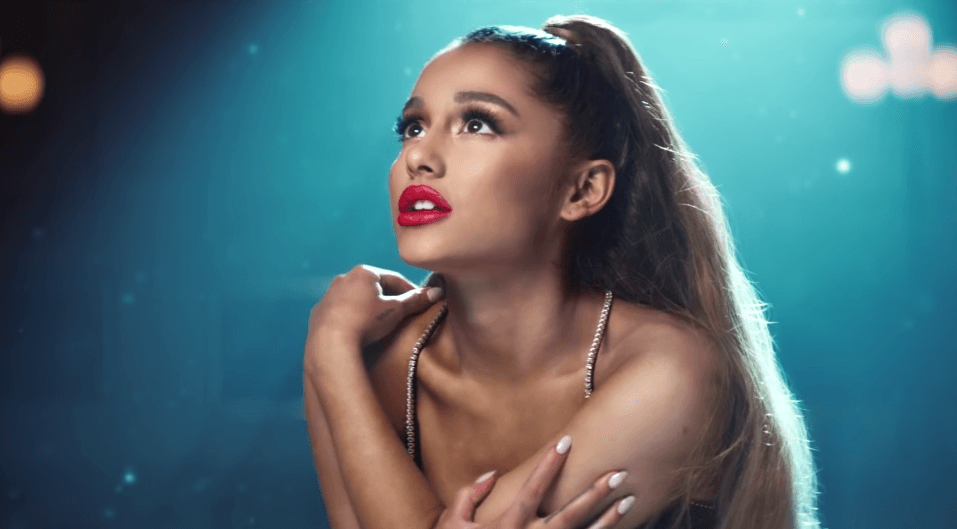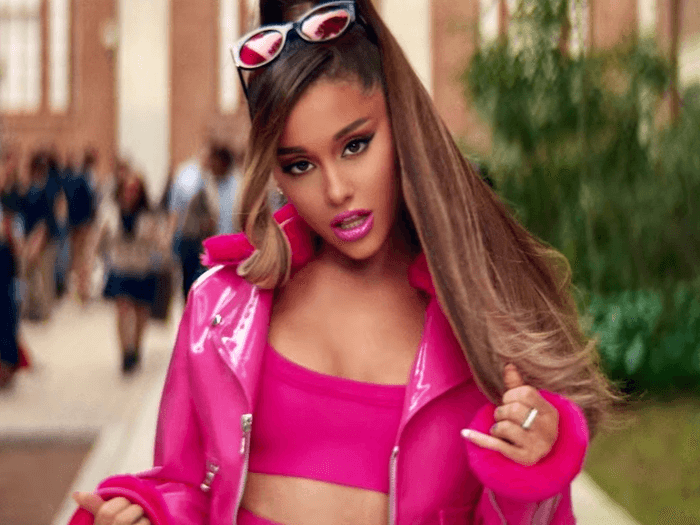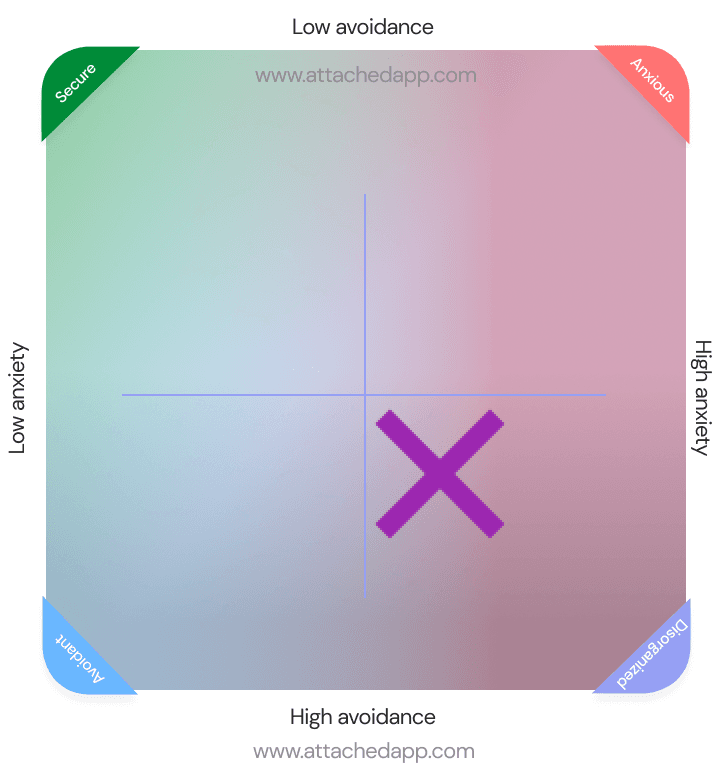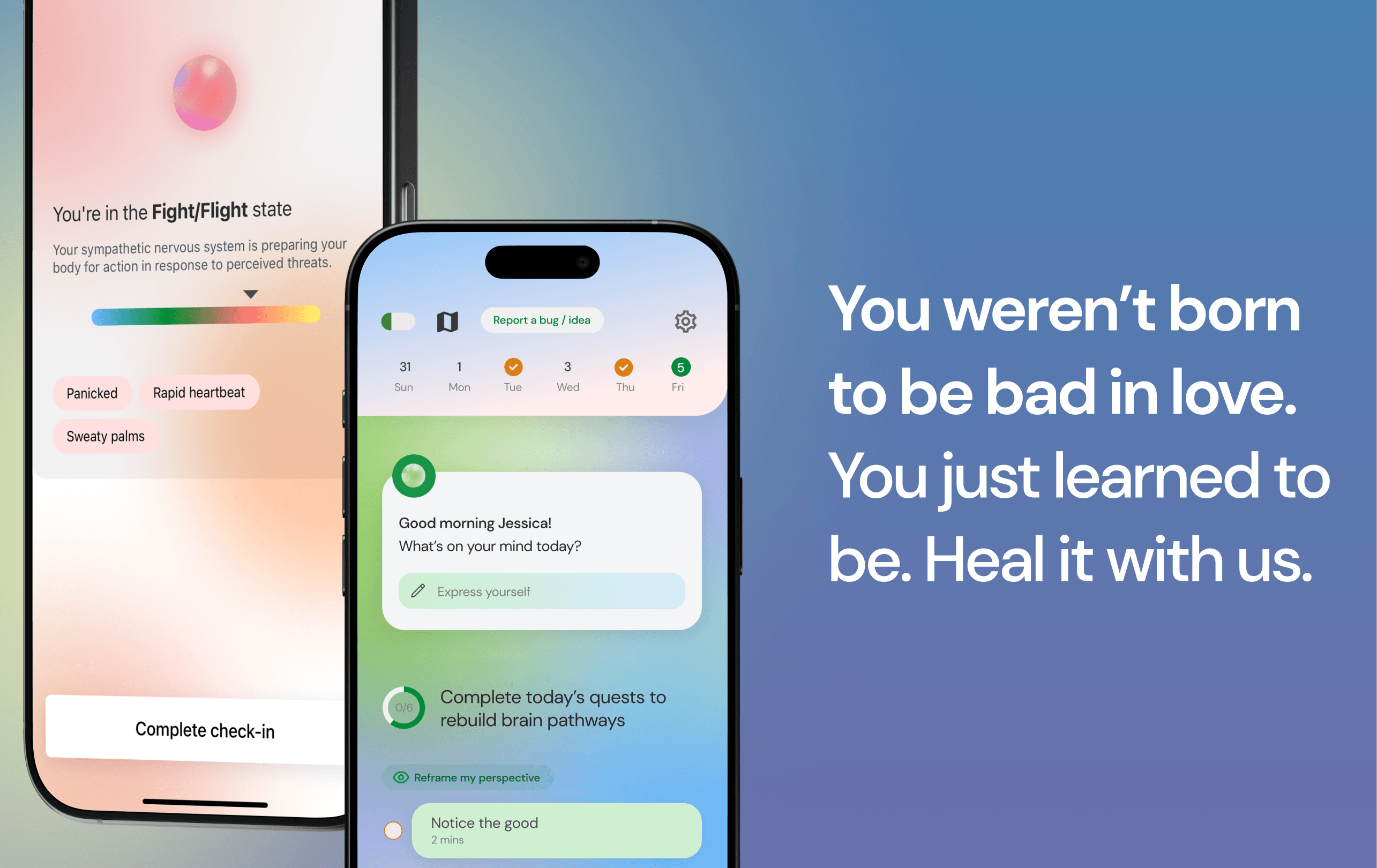What is Ariana Grande's Attachment Style? Let's Dive Deep and Analyze

What is Ariana Grande's Attachment Style? Let's Dive Deep and Analyze
Ariana Grande's love songs hit like a journal entry you didn't mean to read out loud. But behind the melodies is a deeper emotional pattern. One that speaks to fear, craving, and growth. Her attachment style might just be yours, too.
Ariana Grande might hit whistle tones like no one else, but beneath the gloss and glam, her songs reveal some raw truths about how we attach, detach, and repeat.
Our Glinda is a pro at handing us a mic and saying, "Go ahead, cry it out, but make it high-gloss."
But what if Ariana's lyrics don't just reflect emotion—they reveal something deeper, like how she relates to love, closeness, and vulnerability?
Today, we're taking a (respectful) psychological deep dive into what Ariana Grande's music and public love stories might tell us about her attachment style, using insights from attachment theory.

Photo credit: Katia Tempkin
Important: We cannot officially know anyone's attachment style without a professional assessment; this is not professional/medical advice or diagnosis.
Quick Overview: What Are Attachment Styles?
Attachment theory explains how early relationships shape how we connect with people as adults.
There are four main attachment styles:
- Secure: Comfortable with both closeness and independence.
- Anxious (Preoccupied): Craves closeness and fears being abandoned.
- Avoidant (Dismissive): Values independence and often pushes closeness away.
- Disorganized (Fearful-Avoidant): Wants love but fears it too; often feels torn between pulling people close and pushing them away.
Insecure attachment (anything that isn't secure) tends to stem from childhood experiences and mirrors our experiences with caregivers.
Possibility One - Is Ariana Anxiously Attached?

Ariana Grande - Breathing video
Anxious attachment shows up when someone craves love deeply but fears losing it. Ariana's lyrics and dating history reveal these anxious traits.
In Lyrics:
"I'm obsessive and I love too hard / Good at overthinking with my heart." — Needy
A near-direct definition of anxious attachment. Craving closeness, overanalyzing emotions, and fearing rejection.
"If I would have known that you wanted me / The way I wanted you…" — Almost is Never Enough
Longing, regret, and obsessing over what could have been. These are anxious rumination after a perceived emotional mismatch.
"I get butterflies every time you call / Even though you don't deserve them at all." — Why Try
Staying emotionally hooked to someone despite knowing it's unbalanced.
"I'm lookin' for attention, not another question / Should you stay or should you go?" — Let Me Love You
Need for clarity and emotional presence from a partner.
In Dating Patterns:
- Fast emotional bonds: Ariana has been known for forming intense emotional connections quickly (e.g., Pete Davidson engagement after weeks). This tracks with the anxious tendency to idealize love fast and fully.
- High emotional visibility post-breakup: She's written openly about heartbreak and grief (Ghostin, Remember), showing difficulty detaching from emotional pain.
- Partner idealization: Songs often portray past partners as irreplaceable or emotionally central, reflecting the anxious tendency to elevate romantic connection above all else.
What this suggests:
Ariana's lyrics and relationship history show signs of anxious attachment. Intense emotional investment, fear of losing love, and the lingering weight of connection long after it ends.
Possibility Two - Is Ariana Avoidantly Attached?

Photo: Ariana Grande/YouTube
In Lyrics:
"This ain't love, it's just a game we're playin'." — Greedy
Minimizing emotional connection by framing relationships as transactional or fun-only is another avoidant strategy.
"I'ma need space, I'ma need space / I'ma, I'ma need…" — NASA
Literal declaration of emotional distance. The message is avoidant: closeness feels suffocating.
In Dating Patterns:
- Detached framing: Even in love songs, she often maintains emotional control or deflects with humor, which can mask vulnerability.
What this means:
Ariana's avoidant patterns show up when love feels risky. Rather than lean into vulnerability, she often pulls back, reclaims independence, or reframes connection as casual. These moves mirror avoidant attachment strategies—especially after hurt.
Possibility Three - Is Ariana Securely Attached?

Katia Tempkin
"Only thing you could ever do for me is treat me right." — Yes, And?
Direct, confident, and boundary-setting—hallmarks of secure attachment.
"All that I can do is wish you the best / Promise no regrets." — We Can't Be Friends (Wait for Your Love)
Closure without chaos. She's letting go with grace, not desperation—major emotional growth.
"You bring me heaven / What more can I say?" — Ordinary Things
A grounded view of love as supportive and safe, not overwhelming or dramatic.
"I can't fake another smile / I can't fake like I'm alright." — Fake Smile
Emotional honesty, not performance. She's showing up as her full self instead of pleasing others.
"I'm breathing and I'm still going / I can't tell if I'm surviving or living." — Breathin
Vulnerability mixed with resilience. She's managing anxiety, not being ruled by it—huge shift toward security.
In Dating Patterns:
- Intentional privacy: Rather than hiding, she now seems to choose who and what to share—balancing openness with emotional boundaries.
- Less chaos in love songs: Recent albums show more emotional nuance and less idealization, suggesting healthier expectations of love.
What this means:
Ariana's more recent work reflects real emotional growth. She's setting boundaries, expressing her needs clearly, and embracing connection without fear. That's the kind of energy that points toward secure attachment—even if she didn't start there.
So, What Attachment Style Might Ariana Grande Have?

Looking closely at Ariana Grande's lyrics, interviews, and dating patterns, the strongest evidence points to disorganized (fearful-avoidant) attachment.
Why?
Her work shows both traits:
- Anxious traits: Craving closeness, overthinking relationships, and difficulty letting go (Needy, Into You).
- Avoidant behaviors: Emotional withdrawal after hurt, deflecting vulnerability with independence or casualness (Bad Idea).
This combination—wanting love but fearing vulnerability—are signs of disorganized attachment. Her emotional contradictions, swinging between deep connection and emotional self-protection, appear consistently across her music and personal patterns.
Importantly, Ariana's more recent music (Sweetener, We Can't Be Friends, Ordinary Things) shows emotional growth: healthier boundaries, more emotional balance, and signs of moving toward secure connection.
TL;DR:
Ariana Grande's emotional world mirrors disorganized attachment—both anxious and avoidant patterns—but also reflects healing and a clear shift toward greater emotional security.
FAQ
Can someone be both anxious and avoidant at the same time?
Yes.
People with disorganized attachment often show both anxious and avoidant patterns. They crave connection but fear getting hurt.
Does this mean Ariana Grande has disorganized attachment?
We can't say for sure.
Only a professional assessment could confirm it. However, Ariana's lyrics, public stories, and dating patterns closely fit what research describes as disorganized (fearful-avoidant) attachment.
Why would someone develop disorganized attachment?
It often happens when early relationships are both comforting and frightening.
This teaches the brain that closeness might not be safe, creating confusion in adult relationships.
Can attachment styles change over time?
Yes.
Attachment styles can shift through self-awareness, healing, therapy, and healthy relationships. Ariana's later work suggests she's moving toward secure attachment.
How can you work on your attachment style and become more secure?
Recognizing emotional patterns helps. You can also:
- Learn about attachment
- Practice emotional regulation
- Reflect and journal about triggers
- Build supportive relationships
The Attached app helps make this process easier with:
- Daily Quests: Unlock daily quests designed to help anxious attachment and level up.
- Help Mode: Access psychology-backed tools for self-soothing when you feel triggered.
- Intelligent AI Journal: Unlock your hidden patterns and get personalized suggestions as you journal.
- Weekly Insights: Eden—your relationship coach intelligently analyzes your journals to help break down patterns and insights.
Download Attached for free and start working toward stronger emotional security.

